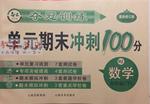题目内容
It’s that unbelievable fantasy that all of us in the music business are pursuing. While we think that few of us will ever win the “ jackpot”(最高奖赏)of music fame and fortune, emotionally we still hope that one day we will be included in that small group.
As long as the music business has existed, people have been trying to discover the basic ingredients for success. Opinions range from having post-graduate degrees in composition on the one hand, to having an uncle who drives the bus for Reba McIntype, a famous country music singer, on the other hand. (Probably both would be helpful!) In my opinion, however, there are two doors that are absolutely essential in order to enter credibility.They are available to anyone, but they do require a key, and the key to both of them is perseverance.
There is nothing that can replace excellence! It is the first door we must open in order to have any hope of achieving our musical goals.And, unfortunately, there is no shortcut to excellence.The only way to achieve it is through dedication, discipline and lots of blood, sweat and tears… in other words, perseverance.
Every day I received emails from promising songwriters and musicians all around the world who mistakenly think that natural talent is the magic ingredient for success.While talent is certainly a plus, it is by no means the miraculous elixir(神奇的灵丹妙药)that will turn you into a famous person. Think about it for a moment: How many very talented people do you know personally who are much better songwriters and musicians than those you hear on TV and on the radio? I’ll bet you can say that you know quite a few.And yet, most of these gifted artists will never be known outside their own family or community.Why? Because natural talent—by itself—is not enough.
Next time we will explore the other door to the world of music achievement—the door of credibility—and how the perseverance key works to unlock it as well.
1.In the author’s opinion, the key to success in music achievement is __________.
A.talent B.dedication C.perseverance D.discipline
2.Which paragraph will end with “Whether you’re very talented, or just average,
perseverance in practicing makes a difference in your music career.”?
A.One B.Two C.Three D.Four
3.What is the author most probably?
A.A psychologist B.A teacher
C.A well-known musician D.A talented writer
4.From the passage, the author wants to tell us_________.
A.difficulties in the music business B.the key to success in the music field
C.the jackpot of music fame and fortune D.the basic ingredients for success
CDCB

 夺冠训练单元期末冲刺100分系列答案
夺冠训练单元期末冲刺100分系列答案 新思维小冠军100分作业本系列答案
新思维小冠军100分作业本系列答案 名师指导一卷通系列答案
名师指导一卷通系列答案(10·陕西A篇)
A
| Ask Dr ? Jeffers | This month Dr. Jeffers is answering questions about the human brain and how it works. |
| Dear Dr. Jeffers, One of my colleagues, Felix Moeller, told me that scientists are learning to use computer to ‘read minds’. Is there any truth to this story/ —Jane Leon, New York, USA Dear Ms. Leon, Well, a lot of research is being conducted in this area, but so far, the brain scanning equipment and corresponding computer programs haven’t been able to actually read thoughts. In one experiment, test subjects(受试者)were connected to scanning equipment and shown two numbers on a screen. They were then asked to choose between adding or subtracting(减)the two numbers. Using this method, researchers were able to follow brain processes and make the correct assumptions(假设)70 percent of the time. It’s not quite mind reading, but it’s certainly a first step. —Dr. J. | |
| Dear Dr. Jeffers, My three-year-old son loves it when I dig my fingers into his sides and tickle (胳肢)him until he laughs uncontrollably. The other day I noticed him trying to tickle himself but he couldn’t do it. Why not? —Glenn Lewis, Vancouver, Canada Dear Mr. Lewis, It’s because of how the brain works. The brain is trained to know what to pay attention to and what to ignore. It causes us to ignore physical feelings we expect to happen, but it causes a mild panic reaction when there is an unexpected feeling. For example, you don’t notice how your shoulder feels while you’re walking down the street. But if someone comes up behind you and touches you lightly on the shoulder, you may jump in fear. It’s that unexpected part that causes the tickle reaction. —Dr. J. | |
46. What can we learn from the answer to the first question?
A. Some equipment is able to read human minds.
B. Some progress has been made in mind reading.
C. Test subjects have been used to make decisions.
D. Computer programs can copy brain processes.
47. People laugh when tickled by others because the feeling is _______.
A. unexpected B. expected C. comfortable D. uncomfortable
48. Who has got a little child according to the text?
A. Ms. Leon B. Mr. Lewis C. Mr. Moeller D. Dr. Jeffers
49. According to the text, Jeffers is probably _______.
A. a computer programmer B. a test subject
C. a human brain expert D. a medical doctor
On October 23, 2011, David Pologruto, a high school physics teacher, was stabbed (刺) by his smart student Jason Haffizulla. Jason got straight A’s and was determined to study medicine at Harvard, yet this was his downfall. His physics teacher gave Jason a B, a mark Jason believed would undermine (损害) his entrance to Harvard. After receiving his B, Jason took a butcher knife to school and stabbed his physics teacher.
How can someone as smart as Jason do something so dumb? Studies show there is little or no correlation between IQ and emotional intelligence.
During my early university years, I regarded myself as an intelligent guy. I got good marks in mathematics, physics, and other subjects. I thought such skills would surely give me a bright future. After one year of study with decent marks, I began to see two major classes of students. The first category of students turned up to few lectures, partied every weekend, enjoyed a great social life, and did minimal work to pass courses. The second category of students were intelligent and hard workers who got good grades and were very focused on their studies. Surely would these intelligent and hard-working students find the great jobs before the other lazier class of students?
Not so. Students are often shocked upon graduation that their qualifications are not as important as they once thought. Graduates enter the workforce only to realize that co-workers hate them and less intelligent people are the ones receiving promotions.
Educational skills are useless in some industries when interpersonal skills are absent. You can have great ideas, theories, and solve complex problems, but if you cannot effectively communicate in a persuasive and exciting manner by relating to your fellow humans, you will face an uphill battle in whatever challenges you encounter. It’s not that people dislike you because of your intelligence; it’s that people dislike you because you’re rude and not understanding. The intelligent person with poor communication skills is insensitive or unaware of others’ emotions.
【小题1】Jason Haffizulla stabbed his physics teacher because .
| A.he was unfairly treated by his teacher |
| B.he was disappointed with his downfall |
| C.he was not smart enough at studies |
| D.he got a worse mark than usual |
| A.didn’t think communication skills were as important as intelligence |
| B.didn’t work hard |
| C.belonged to the first category of students |
| D.could keep a balance between social life and studies |
| A.they can solve more complex problems |
| B.they can’t settle the challenges they meet |
| C.they are envied for their intelligence |
| D.they are not understanding enough |
| A.the relationship between IQ and emotional intelligence |
| B.what kind of students can succeed in college |
| C.smart people may have poorer communication skills |
| D.intelligent students will meet more challenges at work |